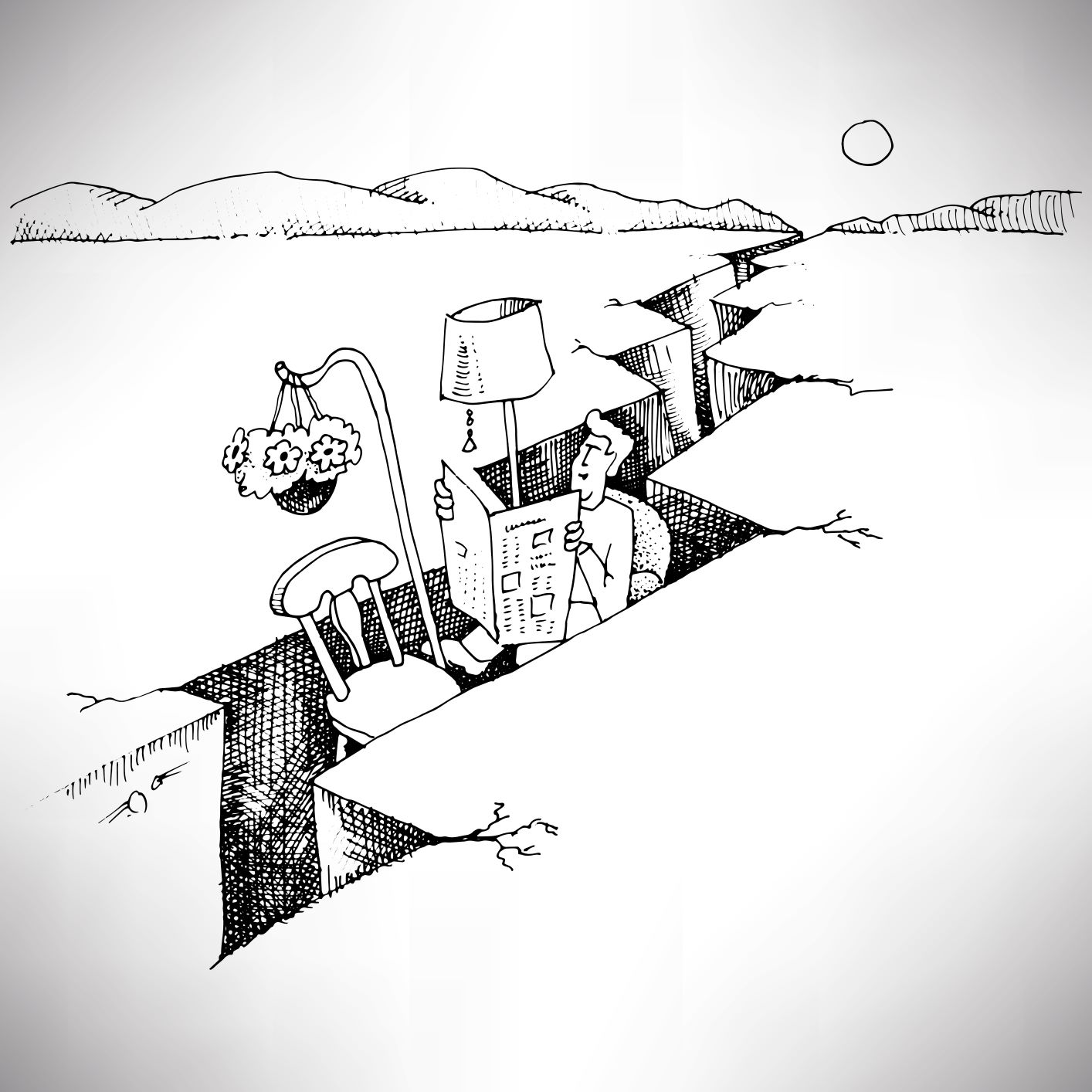Getting Comfortable with Being Uncomfortable

I have learned to get comfortable with being uncomfortable. I had to, because the alternative is…well, there is no alternative if you are going to enjoy life, learn and grow.
We lost everything in the 2008/2009 recession. Soon after, I was diagnosed with cancer. We didn't know where we were going to live or how we were going to pay the medical bills. I didn't even know if I would survive.
It is in moments like these when you are hit with great challenges, and the uncertainty that comes with it, that we want to be assured that everything is going to be okay. We desperately want to know what's going to happen. We want answers even where there are none. This state of ambiguity can result in feelings of insecurity, stress, anxiety, and if it lasts for an extended period of time, depression.
People do not like uncertainty. But the truth is that as long as change is ever present in our lives, so is the uncertainty that comes with it. My dad used to say, “the one thing that is for sure is that nothing is for sure.” Of course, when I was a kid, I didn't quite understand what he meant. After experiencing many unexpected changes in my life, I get it now.
So, what do we do we in times when we do not have the answers? What do we do when we have to live in a state of ambiguity and uncertainty, sometimes for weeks, months or even years? How do we deal with the insecurity and anxiety that comes with a change in relationship status, for example, a new job, or the kids moving out? How do we deal with the fear that comes with an illness, ours, or a loved one? How do we stay calm when plans do not turn out the way we planned, financial upheaval hits, or any other situation that results in an uncomfortable state of being?
Answer: We learn to get comfortable with being uncomfortable. Yep. Sorry if you were hoping for a better answer.
In fact, not only is getting comfortable with being uncomfortable a way to help reduce the anxiety that comes with uncertainty, Jungian psychologist, James Hollis says that being able to live in uncertainty for long periods of time is a sign of growth and maturity; "it is is learning to live with how life really is, full of complexities and strange surprises.”
And how do we get comfortable living with the complexities and strange surprises of life? Here are a few suggestions:
- Let go of certain expectations and prepare for different possibilities. When your expectations are not met, you set yourself up for disappointment. If you are open to different outcomes, there is nothing or no one to disappoint you.
- Avoid black and white thinking and one-sided solutions and accept the paradoxes and complexities of life.
- Approach each day with curiosity. Look at life as both a gift and an adventure rather than a sure thing.
- Know when to let life unfold rather than attempting to control every twist and turn. In other words, focus on what you can control, accept the things that you cannot and know the difference between the two.
- Have patience with not having all the answers. As Rainer Maria Rilke wrote, “live in the question.”
- Do not avoid the anxiety that comes with being uncomfortable. Instead. go towards it. Depression can be a sign of regression. Anxiety is a sign you are moving forward.
- When in need, apply stress reduction techniques such as being mindful, taking a walk, meditation, and/or yoga.
- Be kind to yourself and others in time of change and uncertainty.
- Know that “This too shall pass.”
- Change the narrative. As the Indian spiritual leader Osho said, “Don’t call it uncertainty; call it wonder. Don’t call it insecurity; call it freedom."
And last but by no means least, love each other. We can’t control external forces or change other people, but we can change our attitudes and reactions to these events and people in our lives. As Holocaust survivor and psychologist Victor Frankl once said, “When we are no longer able to change a situation, we are challenged to change ourselves.” Although Frankl's experience was more than most of us will ever have to endure in a lifetime, Frankl understood that attitude and love were first and foremost to survival. When one lives life from this perspective, one is able to be more open to the uncertainty that is certain in life.